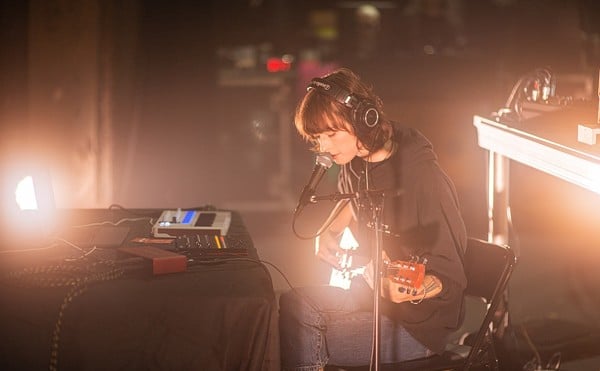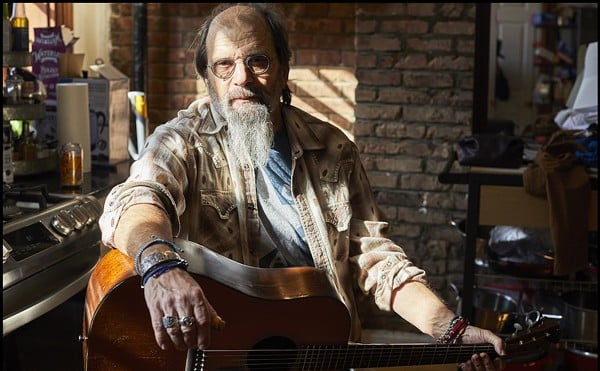In my last column, I summarized the first dozen Hip Hop (Un)Scenes I’ve written for CityBeat. These first 12 columns traveled from the basic how-to’s of recording, performing and building your team to the deeper subjects of questioning why you’re choosing to become an artist and how to find the position that best suits you in the music arena. This column feels like the beginning of round two. I plan to keep bouncing between more advanced and straightforward how-to’s, as well as deeper columns that more speak to the core of what it takes to be successful from a psychological and spiritual standpoint.
So let’s get deep. I’ve been traveling like crazy this past month and honestly have so many thoughts and ideas I want to cram in here, but I do have a word count to stick to. So I’ll have to choose one stream of consciousness and swim down it.
So let’s start at one of the most basic concepts I can imagine about being a potentially amazing, well-rounded and successful artist in your own right, let alone by “industry standards.” This is the idea: As an artist, you have to be able to appreciate and respect the idea of music, even in music that you can’t stand.
You have to be able to separate which music is made “for you” versus which music is made for other demographics of fans and consumers. It’s very easy for grown-ass men and women as artists to complain about how much Waka Flacka and Soldja Boy sucks. And they can lament about how music isn’t what it used to be when they were younger. Shit, I laugh at some of the joints that come on the modern radio, like, “Is this a real song?” But guess what — music is just like it was when we were younger. It doesn’t “sound” like our music. It never will. There’s new technology, new equipment, new thoughts, new ideas. We love the music we grew up with because it represented a time in our lives that helped shape the men and women we would become. It was the music we listened to in elementary and high school that acted as a soundtrack to our most extreme moments. And half of that shit was gimmicky, just like today.
I’m always surprised that the same people who danced to Kid 'n Play talk about how horrible Cali Swag District is. It’s the same emotions and energy recycled into a new generation, just as it was recycled to us coming up.
As an artist, you have to respect the emotion and energy that new artists represent to the kids coming up under you. The second you complain about it on record, the second you become a reactionary, bitter, underground rapper, the second you’re music becomes reactionary, is the second you’ve given up on original ideas and creativity. Artistically, you have to wait and see what another artist does or says to have enough inspiration to write your “reaction piece,” if you will. This thought process creates one of the lowest artistic and creative ceilings anyone could ever imagine.
It’s much easier and more freeing to embrace and respect the creativity that lies behind someone’s music rather than bash it for not appealing directly to your tastes. Now, if you’re not an artist, none of this applies to you — love what you love, hate what you hate. It doesn’t affect your career. But an MC’s career is affected by everything he or she sees, touches, hears, feels and tastes. The quicker an artist can free their mind of the negative energy that is created with bitter and reactionary attitudes towards other artists, the quicker that artist will become successful in their own right. Guaranteed.
This idea applies way beyond music. It’s the same theory that fits in an office. You can either sit with the group of folks on break who complain about everything and everybody at the work place or you can sit with the folks who are brainstorming ideas to help the company they’re working for, pushing that company further. The same structure of thinking applies to an MC.
It’s easy and comfortable to sit in a room with five like-minded friends complaining about how shitty Waka Flocka is, preaching to a choir that already agrees with you. It’s a challenge to accept and value all artistic expression no matter how far out of your lane it is. But with any challenge comes a greater reward. The quicker you can appreciate something in everyone’s music, the easier it is to get positively inspired by something in it. Suddenly, you realize how hard the drums on that beat knock, when you never noticed before. You notice a line here and there that might change the narrow view of music you never realized you had.
Music is something meant to be loved unconditionally. Its worst traits to you might be its best traits to someone else.
ILL POETIC is a multitasking Hip Hop artist and producer. Contact him through www.illpoetic.com.





